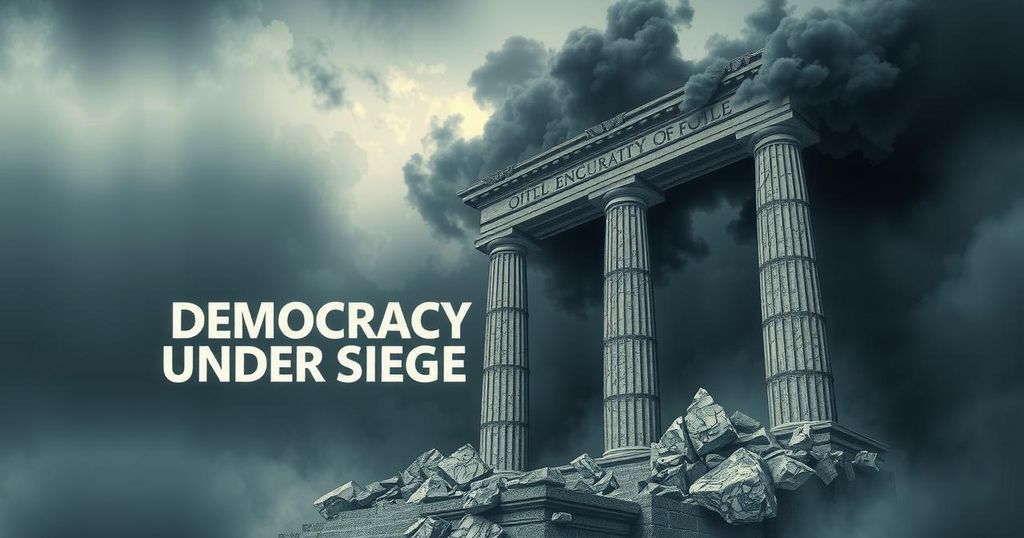UN Sounds Alarm Over Tanzania’s “Shrinking Democratic Space”
The UN has raised alarms over Tanzania’s declining democratic space, citing enforced disappearances and torture ahead of the October elections. Experts called for an immediate halt to these actions and highlighted over 200 cases since 2019, pointing to a troubling pattern of repression against political opponents and activists. President Samia Suluhu Hassan faces a significant political challenge as authoritarianism appears to rise.
The United Nations has raised concerns regarding Tanzania’s declining democratic environment, highlighting alarming reports of enforced disappearances and torture. Experts from the UN Human Rights Council have urged the government of Tanzania to take immediate action to halt these severe human rights violations, which they argue appear to be indicative of a coordinated campaign to suppress democratic opposition as the country approaches its general election in October.
In an unusual but forthright declaration, these experts detailed more than 200 instances of enforced disappearances since 2019. They pointed to incidents, such as the abduction and subsequent torture of notable activists from Kenya and Uganda, as indicative of a worrying trend. The statement emphasized that this behavior seems calculated to silence dissent and undermine the rule of law, asserting that victims deserve comprehensive reparations, including medical and legal assistance.
The current political landscape is complicated for President Samia Suluhu Hassan, who took office in 2021 after assuming leadership from the late John Magufuli. Entering her first election cycle, the atmosphere is already tinged with authoritarianism. Opposition leader Tundu Lissu, known for his criticism of the ruling party, is currently in custody facing treason charges due to allegations of inciting disturbances. Moreover, Lissu’s Chadema party has been barred from participating in the upcoming election, following its challenges to the fairness of the electoral process.
While the Tanzanian government has not publicly addressed the accusations from the UN, the mounting pressures and the actions taken against dissenters cast shadows over the nation’s political climate. Anticipation is building as the election draws near, leaving many to wonder how these developments will impact the democratic processes in Tanzania.
Additionally, Tanzania’s recent actions include barring opposition leader Godbless Lema from entering Kenya and blocking social media platforms, which has further fueled criticism regarding their treatment of dissenters. Observers are now closely monitoring the unfolding situation, with the hope that international pressure will encourage the government to adhere to human rights standards before the elections.
The United Nations has expressed grave concerns about the diminishing democratic space in Tanzania, especially in light of enforced disappearances and torture under President Hassan’s regime. With key opposition figures imprisoned and serious allegations of suppression, questions about the integrity of upcoming elections loom large. The situation’s evolution will be crucial in determining Tanzania’s commitment to human rights and democratic ideals. Further engagement from international bodies may shape the narrative as the election approaches.
Original Source: eastleighvoice.co.ke




Post Comment